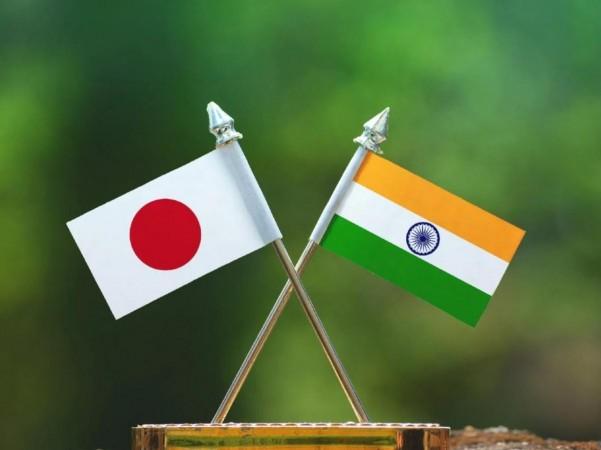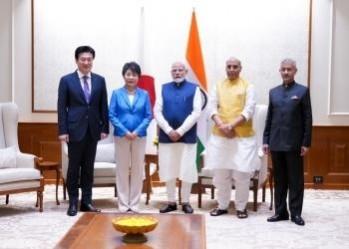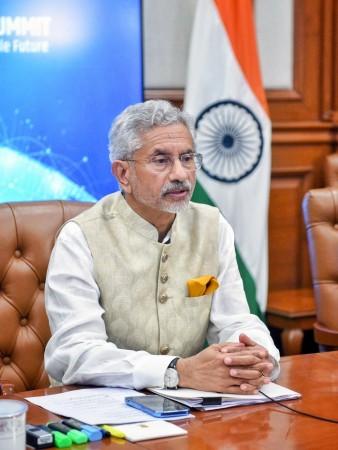
The diplomatic corridors of New Delhi are abuzz with anticipation as the third round of the India - Japan 2+2 Foreign and Defence Ministerial meeting is taking place today.
The meeting, scheduled at the Hyderabad House, will see Japanese Foreign Minister Yoko Kamikawa and Defence Minister Minoru Kihara engage in crucial discussions with their Indian counterparts.
The Japanese ministers, who arrived in New Delhi on Monday, had a courtesy meeting with Prime Minister Narendra Modi, External Affairs Minister (EAM) S. Jaishankar, and Defence Minister Rajnath Singh.
Prime Minister Modi warmly welcomed the Japanese ministers, emphasizing the importance of the 2+2 meeting in the context of an increasingly complex regional and global order. The meeting is a testament to the deepening ties between India and Japan, two nations that have been trusted friends for many years.
Prime Minister Modi shared his thoughts on the need for closer cooperation between the two countries, particularly in areas such as critical minerals, semiconductors, and defence manufacturing.
Japanese Foreign Minister Kamikawa, on her maiden visit to India since assuming office, acknowledged the great responsibility that both Japan and India hold for the peace and prosperity of the Indo-Pacific region and the international society. She expressed her desire to co-create new solutions to the various challenges that the international society is currently facing.
Japanese Defence Minister Kihara also acknowledged the steady progress in security cooperation between Japan and India, stating that it is proof of both countries recognizing the importance of such cooperation.

Before the 2+2 talks, Kamikawa is also scheduled to hold discussions with EAM Jaishankar. They will confirm their intention to deepen cooperative relations between the two countries in the areas of bilateral economic and development cooperation, people-to-people exchanges, and in the international arena. Last month, during his visit to Tokyo for the Quad Foreign Ministers' meeting, EAM Jaishankar stated that India-Japan ties are shaped by the regional and global environment.
He emphasized the need for a contemporary partnership in an era of new capabilities, new technologies, new challenges, and new stresses. Kamikawa, during her talks with Jaishankar, stated that Tokyo considers New Delhi as an important partner with which it intends to deepen cooperation and co-create new solutions through dialogue and collaboration.
The India-Japan 2+2 Foreign and Defence Ministerial meeting is a significant event in the diplomatic calendar of both countries. It is a platform that allows both nations to discuss and strategize on matters of mutual interest, particularly in the areas of defence, security, and strategic cooperation.
The meeting is also a reflection of the growing importance of the India-Japan partnership in the Indo-Pacific region. This is especially significant given the current geopolitical scenario, where the strategic importance of India has never been greater, as acknowledged by Kamikawa just before her arrival in India.

Historically, India and Japan have shared a strong bilateral relationship, characterized by shared democratic values, mutual respect, and strong economic ties. The 2+2 meeting is a continuation of this long-standing partnership, further strengthening the bond between the two nations.
The third round of the India-Japan 2+2 Foreign and Defence Ministerial meeting is a significant step towards deepening the strategic partnership between the two nations. It is a testament to their shared commitment to peace, stability, and prosperity in the Indo-Pacific region and the world at large.

















